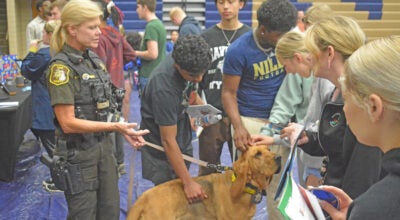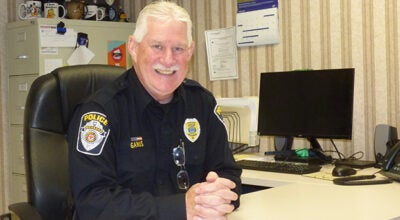Moving beyond desperation: Finding the facts
Published 9:25 pm Thursday, February 2, 2012
Cancer diagnoses expose overwhelmed individuals to “a lot of scary, inaccurate unproven and biased information.”
“When you’re diagnosed, you’re desperate,” Ann Moenke said. “You will believe anything to get a cure.”
Moenke, southwest Michigan health initiatives coordinator for the American Cancer Society from Portage, talked at the Cass County Relay for Life kickoff at Dowagiac Moose Tuesday evening.
She stressed how important the toll-free ACS number, (800) 227-2345, is because a live person answers 24 hours a day.
“Maybe you don’t want to worry your spouse or friends,” she said. “There are oncologists and oncology nurses on call for medical advice. We have a database of more than 70,000 resources, including financial assistance right here in Dowagiac, emotional support groups, transportation and good, reliable information. You don’t have to have a question or a reason to call. Those folks are trained to bring you from a high emotional level down to calm again.”
Moenke displayed one of the personal health manager kits mailed discreetly in a plain white box at no charge to any patient or caregiver who desires one.
“It’s not screaming ‘I’ve got cancer!’ to your mailman,” she said. “This is one of the tools we’ve got available that you guys make possible” with Relay fundraising.
“We have non-biased, peer-reviewed, reliable information that’s easy to understand. It’s catered to each patient because we know how inundated they are with information. This is our way of saying, ‘Let us help you.’
“Once you’ve been home a couple of days, we pop this in the mail to you filled with information specific to your cancer diagnosis and your treatment plan. There are other folders to help keep you organized through that journey. The most well-educated, well-organized person gets thrown for a loop by a cancer diagnosis. This gives you a place to keep medicine, test results, resources and the map to get to the cancer center.”
“When you get that diagnosis,” Moenke said, “you don’t know what you don’t know.”






